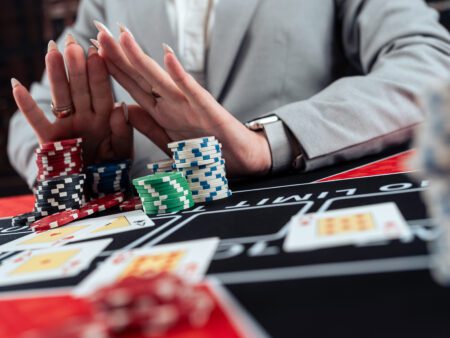Explore the deep psychological ties between stress and gambling behavior. Understand how coping mechanisms influence our gambling habits.
The Role of Stress and Coping Mechanisms in Gambling Behavior
From the thrill of the win to the despair of a loss, gambling is an activity that stirs intense emotions. While many enjoy it as a recreational activity, for some, it can become a coping mechanism, particularly during stressful periods. But what is the psychological connection between stress and gambling? How do coping mechanisms come into play, and can they exacerbate or mitigate gambling behaviors? In this deep dive, we explore these intricate relations and shed light on the emotional underpinnings of gambling.
Understanding Stress
Stress, in essence, is our body’s response to challenging situations. Whether it’s from work, relationships, or financial issues, everyone experiences stress at some point in their lives. The brain releases hormones such as cortisol and adrenaline, leading to physical symptoms like a racing heart, increased breath rate, and heightened alertness. While these reactions can be beneficial in short-lived “fight or flight” scenarios, chronic stress can be detrimental to our well-being.
The Stress-Gambling Nexus
Several research studies have shown a strong correlation between high stress levels and increased gambling behaviors. Here’s why:
- Escape Mechanism: For some, immersing oneself in a game offers an escape from reality and its associated stresses. The bright lights, sounds, and anticipation of a win can momentarily push away troubling thoughts.
- Chasing Losses: Stress, especially when linked to financial woes, may push individuals to try and ‘win’ their way out of their situation, leading to a dangerous cycle of chasing losses.
- Dopamine Release: Winning, or even the sheer act of playing, can cause a dopamine surge in the brain, generating feelings of pleasure and euphoria, providing a temporary relief from stress.
Coping Mechanisms and Their Impact
Coping mechanisms are strategies that individuals use to handle stressful situations. When it comes to gambling, these mechanisms can either mitigate or exacerbate the behavior.
- Positive Coping: This involves seeking social support, focusing on problem-solving, or engaging in recreational activities other than gambling. Positive coping mechanisms can act as a buffer, reducing the allure of gambling as an escape.
- Negative Coping: This may include denial, behavioral disengagement, or substance abuse. Individuals using negative coping strategies may find themselves gambling more frequently, using it as a crutch to handle their stress.
- Avoidance Coping: By evading the stressor, one might turn to gambling as a distraction. However, this only provides temporary relief, and once the gambling session ends, the stressor — often intensified — returns.
Managing Stress and Gambling
Awareness is the first step towards change. Recognizing and admitting that one might be using gambling as a stress-relief can be an eye-opener. Here are some ways to manage this:
- Seek Professional Help: Therapists or counselors specialized in gambling behaviors can offer invaluable insights and coping strategies.
- Engage in Relaxation Techniques: Mindfulness, meditation, and deep breathing exercises can be effective stress-relievers.
- Establish Gambling Limits: Setting time and money limits can create a safety net, ensuring that even during high-stress periods, gambling remains a recreational activity.
Conclusion
The intricate relationship between stress and gambling is multifaceted. While gambling can offer a temporary escape, it’s essential to recognize when it becomes a primary coping mechanism and seek ways to manage stress healthily. Understanding our motivations and behaviors is crucial to enjoying gambling responsibly and ensuring it complements, rather than complicates, our lives.










